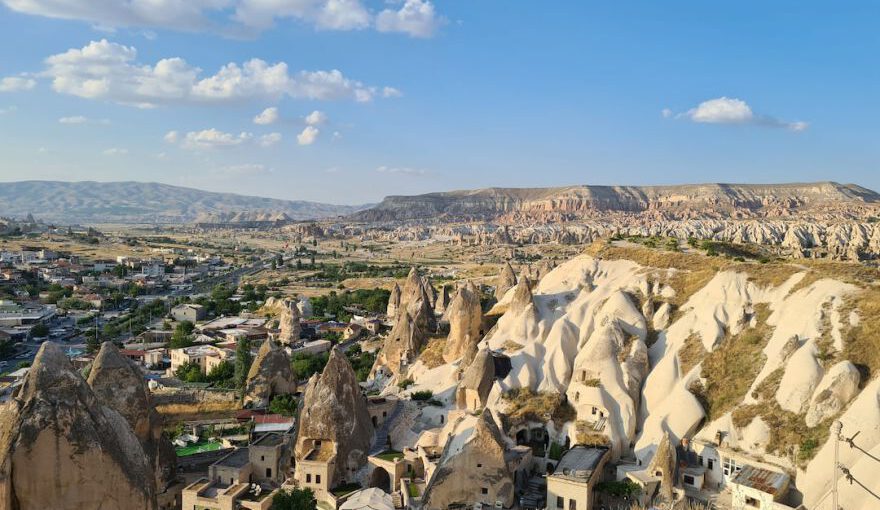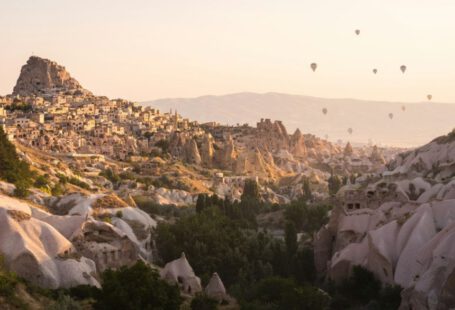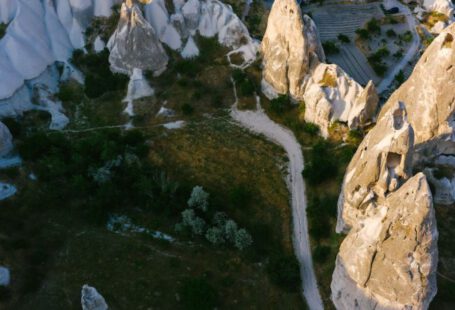Nestled in the heart of Turkey, Cappadocia is a region rich in history, culture, and natural beauty. But beyond its breathtaking landscapes and ancient cave dwellings, Cappadocia holds a spiritual secret that draws pilgrims from around the world – its Sufi heritage. This mystical tradition, rooted in the teachings of the renowned poet and philosopher Rumi, has left an indelible mark on the region, making it a haven for those seeking spiritual enlightenment and inner peace.
The Journey of Rumi
To understand the significance of Sufism in Cappadocia, we must delve into the life and teachings of its most celebrated figure, Jalal ad-Din Rumi. Born in Persia in the 13th century, Rumi was a poet, theologian, and Sufi mystic whose writings continue to inspire millions today. Forced to flee his homeland due to political turmoil, Rumi eventually settled in Konya, a city in present-day Turkey, where he established the famous Mevlevi Order, also known as the Whirling Dervishes.
The Whirling Dervishes
The Whirling Dervishes are perhaps the most iconic symbol of Sufism in Cappadocia. Their mesmerizing dance, known as the Sema, is a spiritual ceremony that aims to transcend the physical realm and reach a state of spiritual union with God. The dervishes, dressed in flowing white robes, spin in graceful circles, their movements symbolic of the planets orbiting the sun and the soul’s journey towards enlightenment. Today, visitors to Cappadocia can witness this ancient ritual at the Mevlana Museum in Konya, where the tomb of Rumi is also located.
Cappadocia: A Sufi Sanctuary
Beyond the city of Konya, the entire region of Cappadocia is imbued with Sufi spirituality. The unique landscape, characterized by its towering rock formations and cave dwellings, has long been a place of refuge for those seeking solitude and spiritual introspection. Many Sufi dervishes retreated to these caves, using them as hermitages to detach from worldly distractions and focus on their spiritual journey. Today, visitors can explore these mystical caves, some of which have been converted into monasteries and meditation centers.
The Melting Pot of Beliefs
Cappadocia’s Sufi heritage goes beyond Rumi and the Whirling Dervishes. Over the centuries, the region has been a melting pot of different religious and spiritual traditions, resulting in a unique tapestry of beliefs. It is not uncommon to find ancient Christian churches, Byzantine frescoes, and Islamic mosques coexisting harmoniously in Cappadocia. This interfaith harmony is a testament to the inclusive and tolerant nature of Sufism, which emphasizes the unity of all religions and the pursuit of universal love.
The Power of Silence
One of the hallmarks of Sufi spirituality is the practice of silence and solitude. In Cappadocia, visitors can experience this profound silence in the underground cities that dot the region. These vast networks of tunnels and chambers were once used as hiding places by early Christians, but they also served as retreats for Sufi mystics seeking solitude and silence. In the depths of these underground labyrinths, one can truly experience a sense of inner stillness and connect with the divine.
A Modern-Day Pilgrimage
Today, Cappadocia attracts not only spiritual seekers but also curious travelers who wish to immerse themselves in its rich Sufi heritage. The region offers a range of activities and experiences, from attending Sufi music concerts to participating in meditation workshops led by Sufi masters. Visitors can also explore the many Sufi-inspired art galleries and handicraft shops, where they can find beautifully crafted calligraphy, ceramics, and clothing reflecting the principles of Sufi spirituality.
The Legacy Lives On
The Sufi heritage in Cappadocia is not just a relic of the past; it is a living tradition that continues to shape the lives of those who encounter it. The teachings of Rumi, with their emphasis on love, compassion, and inner transformation, resonate deeply with people from all walks of life. In a world plagued by division and conflict, Cappadocia stands as a reminder of the power of spirituality to transcend boundaries and unite hearts.
In conclusion
Cappadocia’s Sufi heritage is a testament to the enduring power of Rumi’s teachings and the enduring appeal of Sufism. The region’s unique landscape, mystical caves, and interfaith harmony create an environment conducive to spiritual exploration and self-discovery. Whether one is a devout follower of Sufism or simply curious about the spiritual traditions of the world, a visit to Cappadocia offers a glimpse into a mystical world where the divine and the earthly meet.





